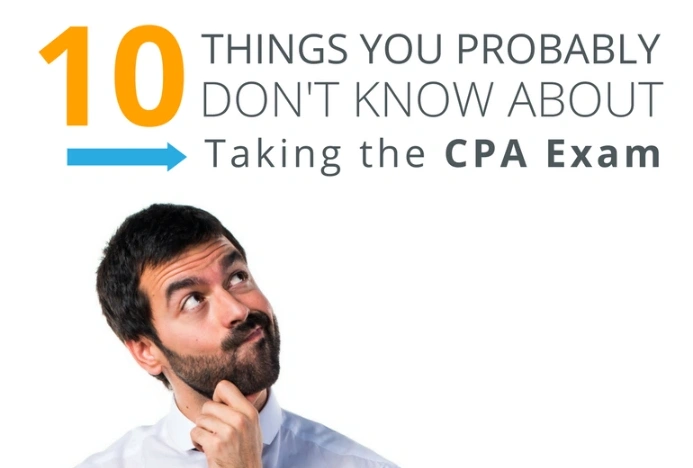1. Exam content typically changes twice a year.
Many CPA Exam candidates do not even realize that they are sabotaging their success by studying from outdated books, lectures, and practice question banks. New pronouncements are released twice yearly and if you are using a review course, you should be able to request updates to your materials. Roger CPA Review students receive automatic updates to their course to reflect these changes.
2. Written Communication in simulations isn't as hard as you think.
While many exam candidates panic at the thought of the written communications section because it involves cohesive writing--and, well--tests your ability to communicate, it isn't nearly as hard as it seems. Only two out of the three (one of them is a pretest question) are going to actually be graded. Remember that it's just like writing a business letter - as long as you respect the rules of good grammar and proper punctuation, you'll be just fine!
3. Watching lectures is just one component to your study strategy.
Some students believe all they have to do is view the lectures, take a few notes, and walk into the Prometric Testing Center a few weeks later to get a 99 on FAR. But of course it doesn't work that way. A good study strategy includes a recipe of success based on both lectures and multiple choice/simulation practice questions. The AICPA recommends 2 - 3 hours of self study (practicing with both multiple choice and simulations) for every hour of lecture watched.
4. Some questions on the exam are NOT graded.
In order to test the system and get preliminary feedback on new exam questions, the BOE often puts "pretest" questions into the question banks. You may find that you know absolutely nothing about one certain question and get scared that you missed something while studying; but chances are, this question is one of the pretest questions that will appear on later exams and is not graded. So don't worry! They're just trying to get feedback on new material!
5. BEC is NOT easy just because it's a smaller section.
CPA Exam candidates will do themselves a disservice by assuming that because BEC is a smaller section, it's easier and doesn't require as much dedication as the rest of the sections. However, this is not the case. Many candidates have failed BEC and had to retake it more than once.
Remember that all sections of the exam are easy/difficult in their own right and each requires an equal amount of focus. BEC, in fact, can be harder for students simply because they do not take it seriously enough. Don't make that error. Give it the full attention you would any other section or you will have to learn your lesson the hard way via retake fees and frustration.
6. You are not “dinged” for wrong answers.
When going through the multiple choice, you are given credit for right answers only, not wrong ones. If you have absolutely no idea how to answer a question, never leave it blank! Take a guess because you might just get it right and receive credit for it!
7. Try to complete the Research-Task questions.
They're an easy way to rack up points and they're normally graded as all or nothing. So try to complete them to get credit!
8. Performance in college is not necessarily an indicator of how you will do on the CPA Exam.
Just because you pulled steady B's and C's in college does not mean you should let that discourage your goal of CPA licensure. How you perform in school is based on a lot of things: pressure, instructors, class loads, etc. The CPA Exam is entirely different and as long as you follow a structured guideline of study/lectures, you can PASS!
9. The order you take the exam in can make a huge difference in understanding the foundation of accounting principles.
We recommend starting with FAR because it covers a little bit about a lot of topics which helps build your body of knowledge and a solid foundation going forward as you study for the rest of the sections.
Next we recommend taking AUD or REG, depending on your area of focus. If tax was your concentration in school or you're already exposed to it at work, take REG next; and vice versa with AUD. No matter which route you go, both sections overlap nicely with FAR, giving you the ability to evaluate what you learned in FAR at an evaluative standpoint.
Lastly, we recommend taking BEC since it nicely pulls all 3 of the previous sections together. You can think of BEC as a consultant to the rest of the sections.
10. The CPA Exam is NOT a test of intelligence--it is a test of discipline.
This is one of Roger's favorite points. Half the battle of passing the exam is formulating a solid study plan and sticking to it. If you are disciplined enough to live and breathe the exam for the limited amount of time you spend studying, you will PASS!




